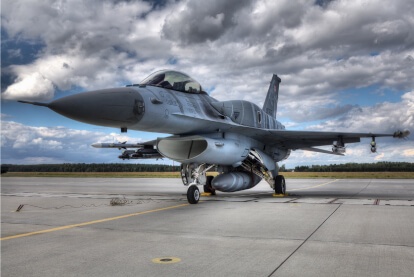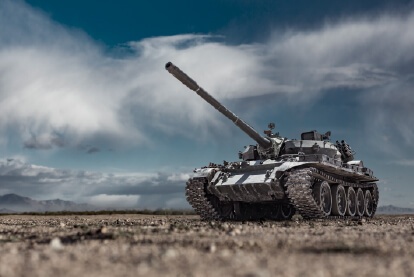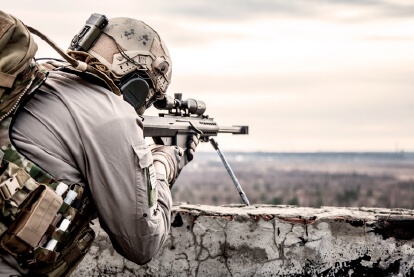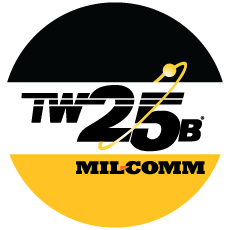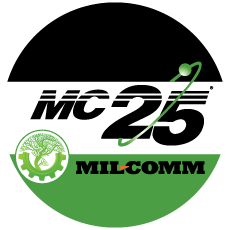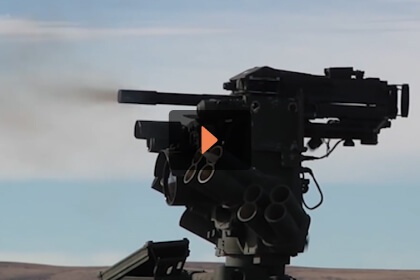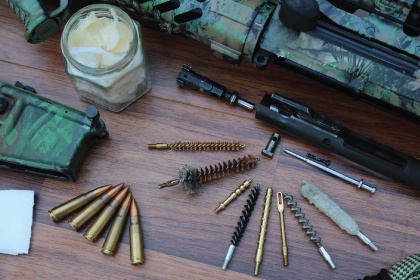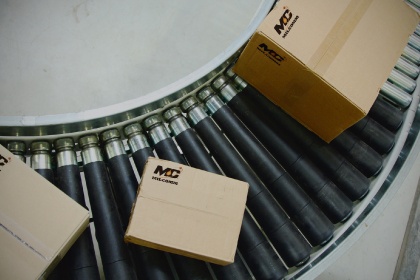After shooting a handgun, whether it be a revolver handgun or a semi-automatic, cleaning a gun is not difficult if you start with the right gun cleaner and gun lubricant grease or oil.
In fact, YOU can actually clean a gun better than most gunsmiths.
Cleaning gun or gun parts involves first getting cotton patches and brushes if needed, which should be nylon and not bronze if you can help it. Metal will scratch your gun parts easily, leading to hard buildup and the need for deeper cleaning.
Gun cleaning typically involves breaking down the main gun parts, like the slide on a semi-auto or just releasing the cylinder on a revolver. Then, spray a safe product like MC25 cleaner on your parts, and let it sit for a few minutes so it can work on the surface to begin to remove buildup. You will then need to dry parts with cotton wipes to get the cleaner residue off.
If there is heavier buildup, use a nylon gun brush or a toothbrush to more aggressively agitate and clean up the surface. If needed, spray more gun cleaner on the parts until the cotton wipes appear clean. At this point, you will have a clean, dry surface.
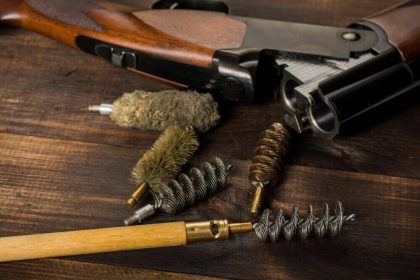
Next is lubrication. Choose a modern synthetic grease or gun oil like TW25B or MC2500 and apply it either directly to the firearm surface or to cotton patches. Wipe on the gun grease or firearm oil to those metal gun parts. You will see that additional fouling may be removed and onto the cotton, which is a good thing. Lubricate inside the barrel with very little grease preferably. If you see it, there is too much gun lubricant on the surface, and you want to avoid that.
Lubricating oil is also good for the outside of the barrel, especially on contact or friction points. On a semi-automatic pistol, the rails are critical points of lubrication. Also, the connector, slide and trigger assembly. In most cases, you do not want to lubricate too much. Gun oil or gun grease on the metal surfaces of the body of the firearm is permitted, but you don’t want to make a mess. It is only critical for stainless steel; other parts made of plastic, wood and rubber don’t need it. You want to keep them dry.
You DO NOT want to lubricate the firing pin, which is also known as the striker. Wipe off carbon fouling or other debris, but keep it dry. You need to maintain a direction contact between the pin and the primer, which causes the ballistic event. Failure to do this may lead to a misfire.
From there, repeating the firearm cleaner and lubricating process is based on how much you shoot and how dirty the ammunition is. Typically, if a shooter fires 100 rounds in one event, a cleaning should be quick and easy. Some people clean at a 1,000-round interval. It is up to you. In the process, you should also do periodic maintenance on your revolver firearm such as making sure that the springs aren’t worn out. That should not happen for a long time but it will happen.
The same goes for the semi-auto pistol and the magazine springs. Some people also replace other worn parts such as grips, along with inspecting sights and other attachment options.
A gunsmith cleaning usually involves a more complete breakdown of all of the parts which could be 30 to over 50 count in total. Many pistol gunsmiths put the firearms in parts washers or ultrasonic gun cleaning machines for a more thorough job. However, they use gun cleaner and gun oil baths that are inferior to the quality of materials that are recommended. So, you have to clean up after they return your gun to you, and follow the instructions as outlined above.
In other words, a gunsmith doesn’t necessarily know how to clean a handgun properly since they take a more practical approach to the task. You are your own expert, so research the subject further and buy your own gun cleaning and firearm lubricant products.
Cleaning a rifle or shotgun is similar but the major difference is that they have long barrels which require a gun rod to carry the cotton patches, reaching all of the way through the bore. They also tend to have heavier buildup. Rifles project larger rounds traveling at a greater bore velocity, and a shotgun shell is also larger and creates more fouling while generating more heat in the barrel. For that reason, the gun cleaner and gun lubricant you select are even more critical.

